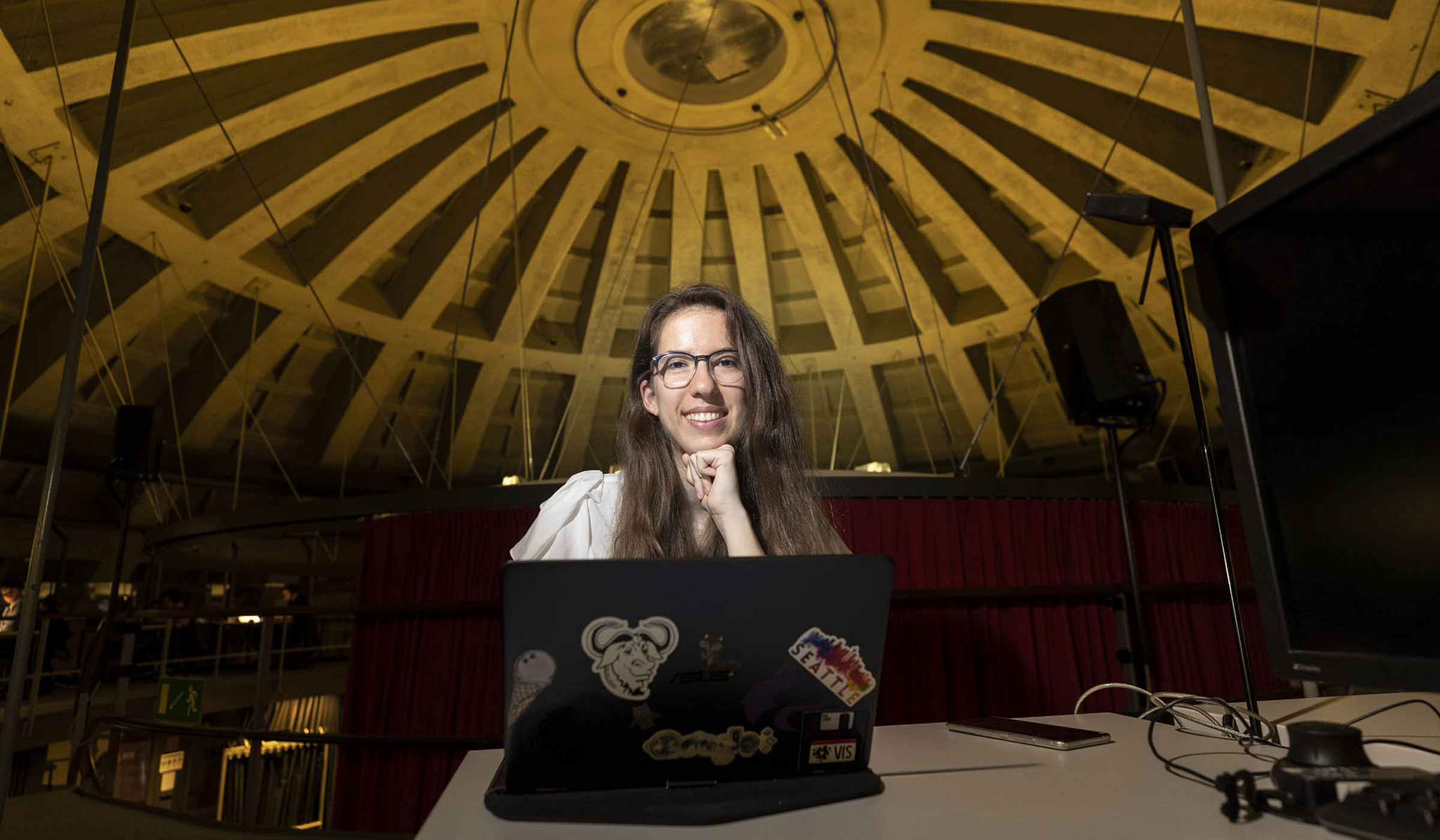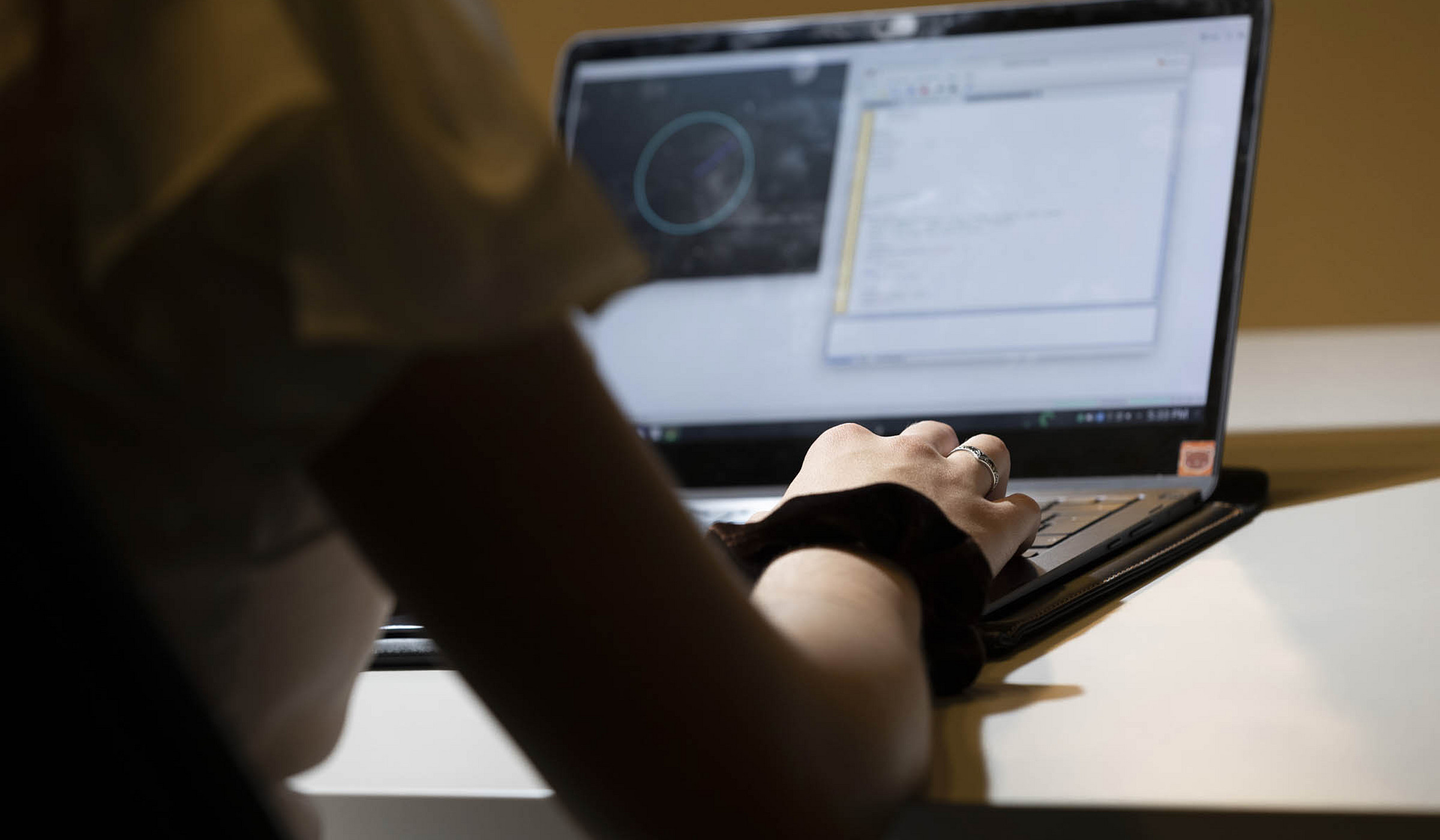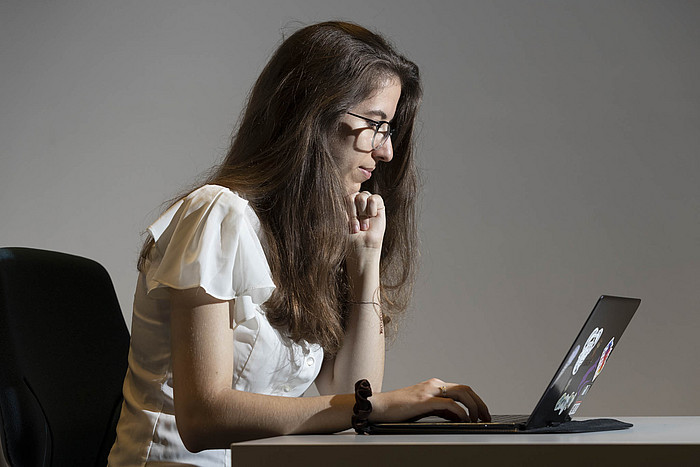Portrait: Logic and Passion
As children, she and her sisters competed over calculations and logic puzzles. Today, she passes on her knowledge to the next generation of mathematically gifted youngsters. Ivana Klasovita knows first-hand how valuable talent promotion in STEM subjects can be – especially for girls and young women.


From an early age, Ivana Klasovita was no stranger to mathematical thinking: Her parents are both electrical engineers, her older sister studies physics, her twin sister mathematics. Even as young children, Ivana and her sisters loved to play Trio - a combination game which requires a lot of mental arithmetic. With a mischievous smile, Ivana remarks that her sisters often had to admit defeat to her, which occasionally led to a bit of bad blood between them. In a way, the three sisters have always been competitors, lovingly pushing each other to higher achievements - to the Science Olympiads and beyond.
Ivana Klasovita successfully took part in the Swiss Informatics, Physics and Mathematics Olympiads during her time at the Kantonsschule Rämibühl (ZH). She is currently in the last semester of her Bachelor's degree in Computer Science at ETH Zurich. When she needs a break from mathematics and the like during the semester holiday, Ivana also loves to read science fiction novels.
When asked why she likes mathematics so much, Ivana chuckles. Her love of mathematics stems from her aversion to subjects centred around languages. Ivana was born in Slovakia in 1999 and moved to Greifensee (ZH) with her parents and her two sisters when she was a toddler. Her mother tongue is Slovak. She learned German when she entered kindergarten. Shortly after, she had to start learning French and English as well. Compared to all these foreign languages with their numerous grammatical rules and even more numerous exceptions, mathematics came as a relief to Ivana. The clearly structured work, the unambiguous rules, logical thinking instead of rote memorisation; all this came naturally to her.
Ivana and her twin sister Viera began to truly thrive mathematically when they met Tatiana Samrowski of the Junior Euler Society. She recognised the enthusiasm, curiosity, perseverance and mathematical talent of the sisters and mentored them to international success: At the Swiss Mathematical Olympiad, Ivana qualified for the European Girls' Mathematical Olympiad (EGMO) 2017, which was held in Switzerland. There, she won a bronze medal. While her schoolmates went swimming, hung out with friends or slept in, Ivana and Viera spent their afternoons or Saturday mornings doing maths. To Ivana, mathematics was what gymnastics or playing the violin might be to someone else: A passion, which, while demanding a lot of time and effort, sparks great joy.
The Junior Euler Society (JES) is a programme by the Mathematical Institute of the University of Zurich. It aims to provide interested children and teenagers with a playful approach to mathematics and to encourage them in the pursuit of this subject. JES offers regular courses for different age groups from primary school to Matura level. These courses encourage independent thinking and creative problem solving. Special preparatory courses for mathematics competitions are offered as well.
After her Matura, Ivana decided to study computer science at ETH Zurich. During her time at Gymnasium, she had taken part in various physics competitions where she learned what it means to construct models and conduct experiments. Over time, Ivana realised that she didn’t enjoy the methods of physics all that much. Consequently, mathematics was also out of the question, as it is very closely tied to physics at ETH Zurich. In the end, she decided to major in computer science.
When I bring up women in STEM, I receive a strong reaction from Ivana. As a little girl, she got used to the fact that her favourite toys - remote-controlled cars – could only be found in the section for boys and were always painted blue. Meanwhile, her grandmother often gave her pink dolls as a present, Ivana says with a smirk. Although her grandmother was well intentioned, Ivana sees her presents as an example for the influence exerted by social stereotypes. Ivana firmly believes that women and men should be encouraged to find their place in society outside of traditional gender roles and that, as a society, we should encourage them, whether it be by offering generous paternity leave or championing women in science and technology. Ivana believes that Swiss universities in particular have some catching up to do in this area. In Seattle, where she studied for half a year, she found that the number of women in her lectures was significantly higher. In Ivana’s opinion, there aren’t enough female professors in Switzerland who could act as role models. She would like to see institutions commit more actively to supporting the advancement of women.

When advocating for programmes specifically directed towards young women in STEM, such as the EGMO, Ivana has frequently been met with criticism. She’s often told that if women would just perform as well as men, none of these programmes would be needed. Ivana does not accept this argument. She points out that in the first rounds of the Swiss Mathematical Olympics, women only account for 30% of all participants. As a result, it is rare for girls to be represented at the International Olympiads, where they could act as role models. According to Ivana, programmes for female participants in particular are the only way to break this vicious cycle. This is why she got involved in the organisation committee of the European Girls' Olympiad in Informatics, EGOI for short. This competition was launched by volunteers from the Swiss Olympiad in Informatics. In June 2021, it will take place in Zurich, for the very first time. Ivana hopes that EGOI will give young women the chance to meet others on the same wavelength. As she knows from experience, such encounters can lead to long-term friendships. Even after five years, she is still in touch with people she met at the EGMO.
As for her own future, Ivana isn’t quite sure what the next few years will bring. Generally speaking, she is more interested in the theory of computer science than in its practical application. She also likes to pass on her fascination and knowledge to others. For years, Ivana has been volunteering for the Junior Euler Societiy, where she teaches mathematics to children and teenagers. She loves to watch them improve and develop a real appreciation and understanding for the subject. She could see herself teaching computer science professionally at a high school or university. If she does choose to become a teacher, her curiosity, passion and enthusiasm will certainly help her on the way.
About the author: Eva Angehrn studies medicine in Bern. Four years ago, she took part in the International Biology Olympiad in Vietnam. Now, Eva volunteers for the Science Olympiad's blogging team.
